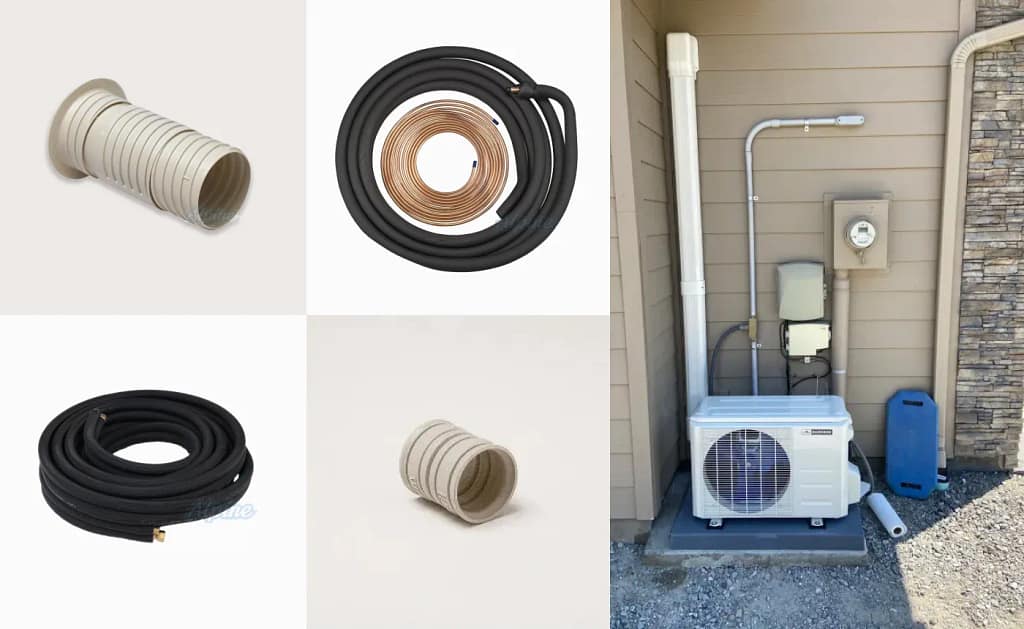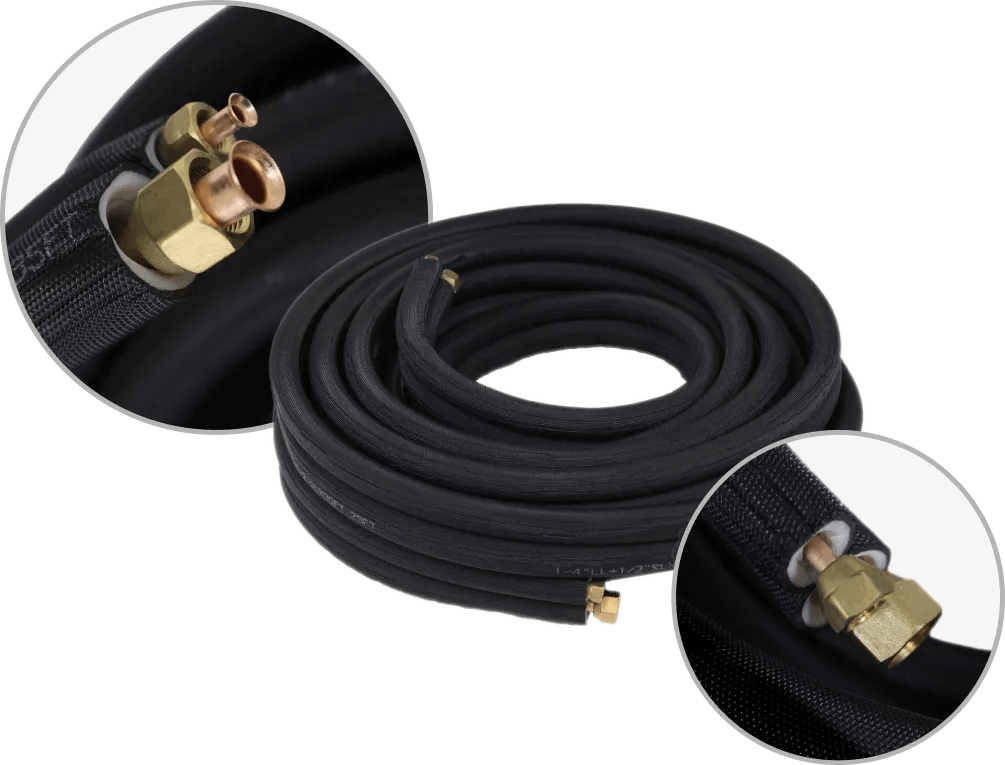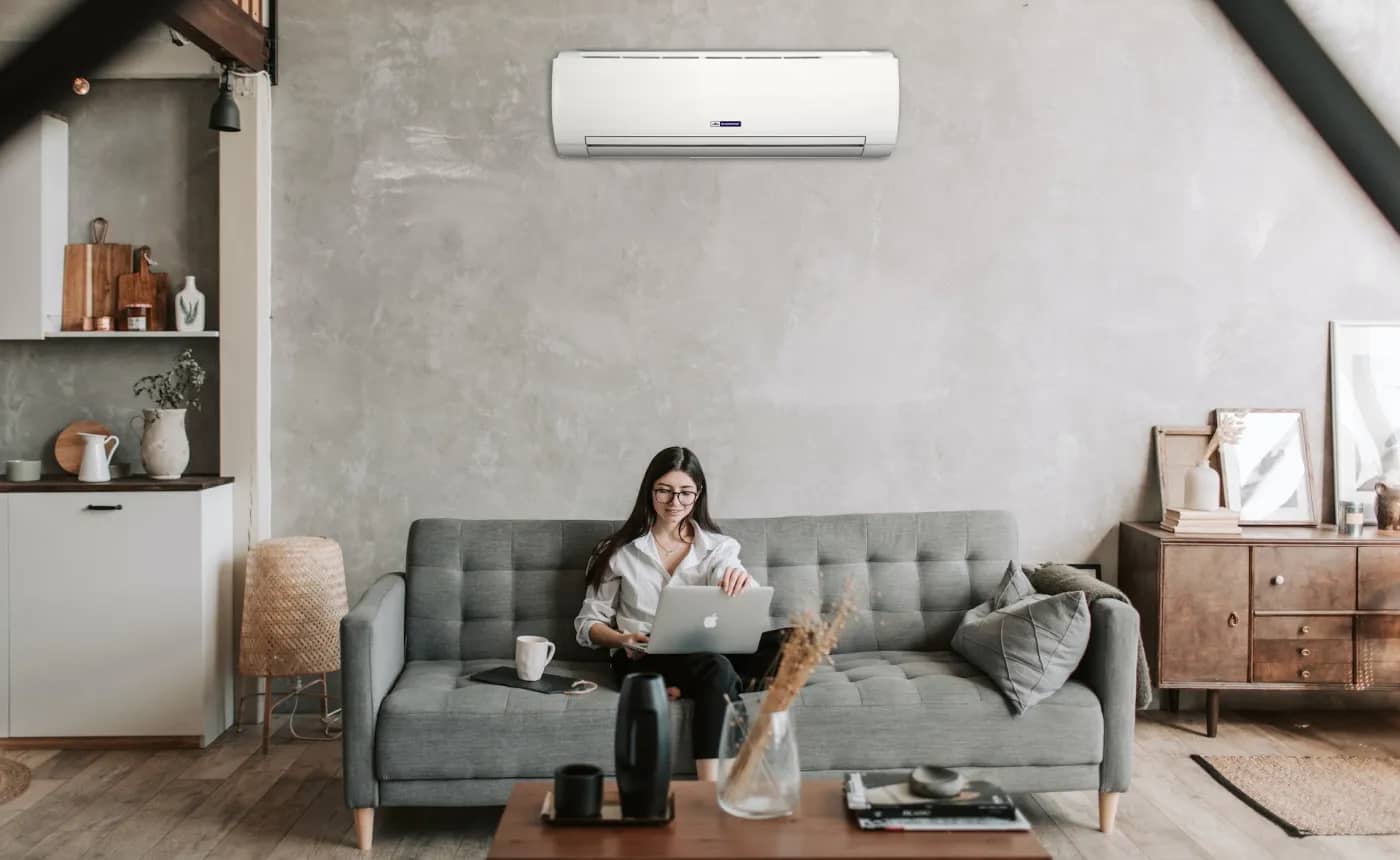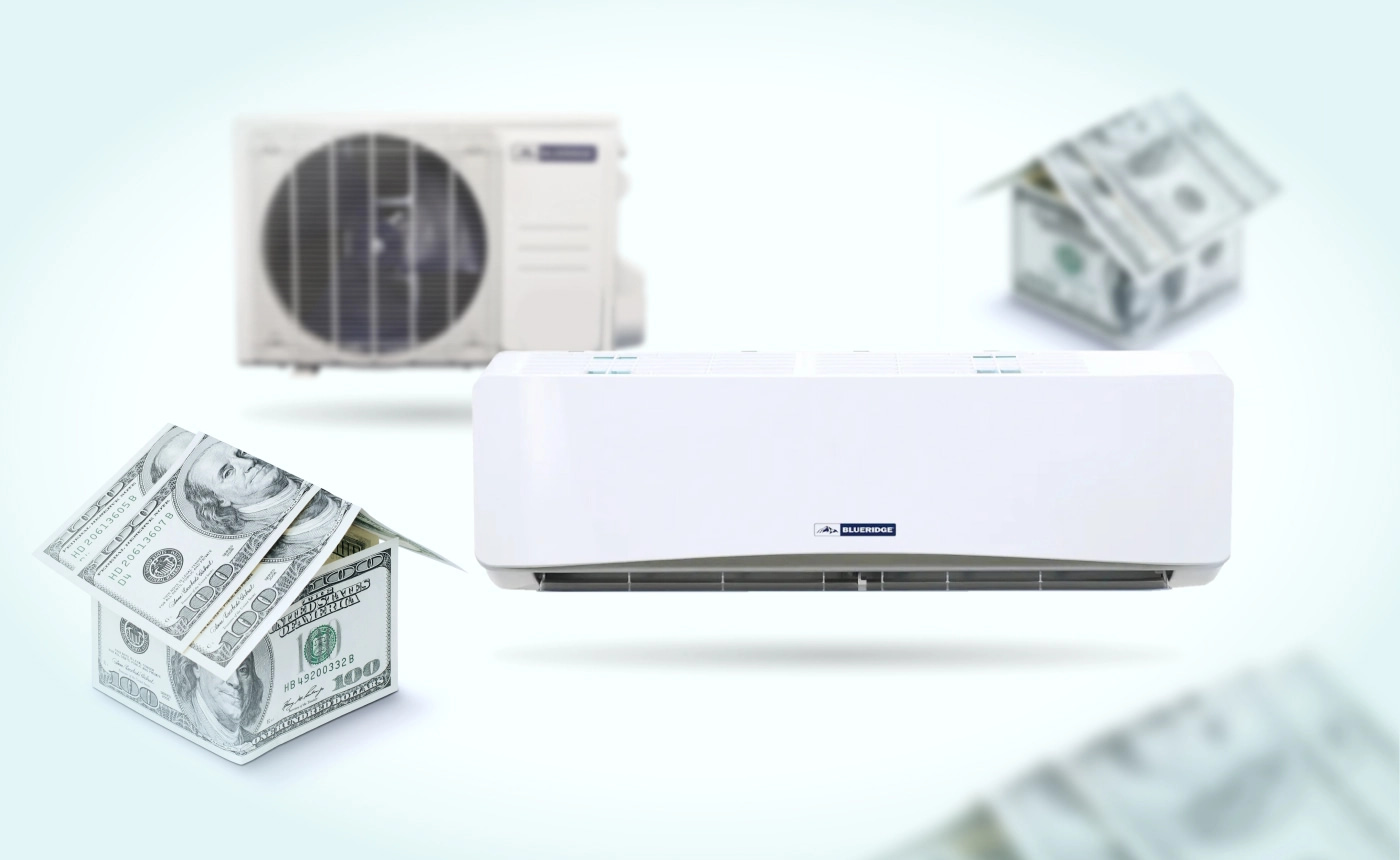
You’ve researched ductless mini-systems and feel confident you can choose the right one for your needs. But you’re still wondering: What is a mini-split line set? And what do I need to know about it before I purchase my mini-split system?
KEY TAKEAWAYS
- A mini-split line set is a crucial component in ductless mini-split HVAC systems, facilitating heat transfer between indoor and outdoor units.
- Proper insulation of line sets is essential for maintaining system efficiency and preventing energy loss.
- Professional installation and regular maintenance of line sets are vital to ensure the long-term performance and reliability of ductless mini-split HVAC systems.
Though most people focus on the indoor unit(s) and outdoor unit of a mini-split system when they are getting ready to purchase one, it’s also important to know about the line set, what it is, what it does, and why it matters.
The mini-split line set is the unsung hero of the ductless mini-split system. Let’s find out why.
What is a Mini-Split Line Set?
Mini-split line sets are essentially the lifeline of a ductless mini-split HVAC system.
A line set consists of two insulated copper pipes containing refrigerant that connect the indoor and outdoor units.

These lines are essential for efficiently heating and cooling your space and ensuring that your mini-split system operates at its optimal performance levels.
Without the mini-split line set, the heat exchange process central to a mini-split system’s functionality simply wouldn’t occur.
The Vital Connection: The Refrigerant Lines
If the line set is considered the lifeline for a ductless mini-split AC system, the refrigerant lines are the lifeblood. They play a pivotal role in the system’s ability to effectively transfer heat, which is fundamental for heating and cooling functions.
These lines contain refrigerant gas, responsible for absorbing heat from the indoor environment (in cooling mode) or releasing heat into it (in heating mode).
This vital process would be impossible without properly installed and operating refrigerant lines.
Facilitating Heat Transfer
Refrigerant lines transfer heat between a mini-split system’s indoor and outdoor units.
A mini-split heat pump line set comprises two pipes carrying refrigerant between the compressor and the evaporator coils. These lines operate separately as the low-pressure line and high-pressure line. These are also called the liquid and suction lines.

The suction line (the low-pressure line) has a larger diameter and carries the refrigerant from the evaporator coils to the condenser. The smaller liquid line carries the high-pressure refrigerant from the compressor to the evaporator coils.

These copper pipes move refrigerant in a cycle through the compressor, condenser, and evaporator.
In the cooling mode, the refrigerant lines carry heat energy from warm indoor air to the outdoor unit, where the heat is released into the atmosphere. This process results in a cooler indoor environment.
In the heating mode, the refrigerant lines absorb warm air from the outdoors and carry it indoors. This heat transfer is possible due to the properties of the refrigerant gas, which can change states from a liquid to a gas and back again at relatively low temperatures.
As the refrigerant circulates through the indoor unit’s coil, it releases the absorbed heat into the indoor space, providing warmth.

Powering Up: The Electrical Lines
Powering up a mini-split system involves more than just plugging it in. And operating one takes more than just the refrigerant lines and the indoor and outdoor units.
Electrical wiring is a crucial component that plays a pivotal role in the operation of mini-split systems. Unlike traditional HVAC systems, mini-splits have a unique electrical setup to enhance efficiency and flexibility.

Connecting the Components:
Mini-split systems consist of two main units—the indoor air handler and the outdoor condenser or heat pump unit. The electrical wiring serves as the conduit through which these two units communicate.
It allows for information exchange and commands between them, ensuring the system functions as a cohesive whole.

Enables Control:
Electrical wiring allows precise control over the mini-split system, meaning you can easily adjust the temperature, fan speed, and other settings.
Whether you want to cool a room quickly or maintain a consistent temperature, the electrical wiring allows you to fine-tune the system to your preferences.

Facilitates Energy Efficiency:
Mini-splits are known for their energy-efficient operation, and the electrical wiring plays a significant role.
These systems use inverter technology, which allows for variable-speed operation. This means that instead of running at a fixed speed, the compressor and fan motors can adjust their output as needed. The electrical wiring helps to make this happen, thus reducing energy consumption and minimizing temperature fluctuations.

Think Safety:
Proper electrical wiring is essential for the safety of your mini-split system. It ensures the system operates within safe parameters, reducing the risk of electrical issues or overheating. Though many mini-split systems can be installed without professional support, it is recommended that you seek the help of a licensed electrician when working with the electrical components of your mini-split air conditioner.
The Insulation Factor
A line set’s insulation is crucial in any mini-split heat pump system.
We know that the refrigerant lines play a pivotal role in moving refrigerant through the system and that the electrical lines keep everything powered up and running.
However, insulation on the line set is equally vital, offering several benefits that can enhance system efficiency and extend the lifespan of your HVAC equipment.
Enhanced Efficiency: Insulation on the low-pressure suction line prevents thermal energy loss, ensuring the system operates efficiently by minimizing heat transfer.
Condensation Prevention: Insulation shields the line set from condensation, which can compromise system efficiency and cause moisture-related damage if left unchecked.
Moisture Damage Avoidance: Insulation helps prevent moisture-related damage, including mold and mildew growth, by keeping the line set dry.
Improved Longevity: Proper insulation maintenance can extend the lifespan of your HVAC system, reducing the need for premature repairs or replacements.
Energy Savings: Enhanced system efficiency due to insulation can lead to lower energy consumption, resulting in cost savings on energy bills.
Pest and Intrusion Barrier: Sealing holes around the line set’s entry points prevents pests and moisture from infiltrating your home.
How to Maintain Your Line Set
Proper maintenance of your mini-split’s line set is crucial for ensuring your air conditioner system’s long-term efficiency and effectiveness.
By following these maintenance guidelines, you can prevent refrigerant leaks and other issues, keeping your system in top condition:
- Inspect Insulation: Regularly check the condition of the insulation on the low-pressure suction line. Look for any signs of damage, such as tears, cracks, or gaps. Promptly repair or replace damaged insulation to prevent condensation and thermal energy loss.
- Seal Entry Points: Properly seal any holes or gaps in the walls or foundation where the line set enters your home. This prevents moisture, pests, and outdoor air from infiltrating your living space, affecting system performance.
- Monitor Refrigerant Lines: Examine the refrigerant lines for visible wear, corrosion, or damage. If you notice issues like kinks, bends, or dents in the lines, address these promptly to prevent refrigerant leaks.
- Clean Surrounding Area: Keep the area around the line set clean and debris-free. Remove any vegetation, dirt, or objects that could obstruct or damage the pipes. A clear, unobstructed path ensures efficient heat exchange between indoor and outdoor units.
- Refrigerant Leak Detection: Periodically check for refrigerant leaks in the line set. Signs of a refrigerant leak may include reduced cooling or heating performance, hissing sounds, or an unusual increase in energy bills. If you suspect a leak, contact a technician for leak detection and repair.
- Annual Maintenance: Include line set maintenance as part of your annual HVAC maintenance routine. Regular servicing can help maintain the optimal efficiency of your existing line set, prevent unexpected breakdowns, and prolong the life of your mini-split system.
By adhering to these maintenance tips, you can ensure that your mini-split line set remains in good condition, contributing to the overall efficiency and reliability of your heating and cooling system.

Alpine: Your Online Source for Mini-Split Line Sets and More
In 2002, Alpine Home Air Products became the first to sell online heating, air conditioning, and indoor air quality products.
Since then, we have proudly served hundreds of thousands of wonderful customers like you, helping them save time and money by buying their products directly.

We are pleased to offer name-brand, contractor-grade products designed to provide you with the most comfortable and healthy indoor living at home.
When you are looking for new or replacement HVAC parts or accessories for your home or office, reach out to our experts for help. We can’t wait to hear from you!


